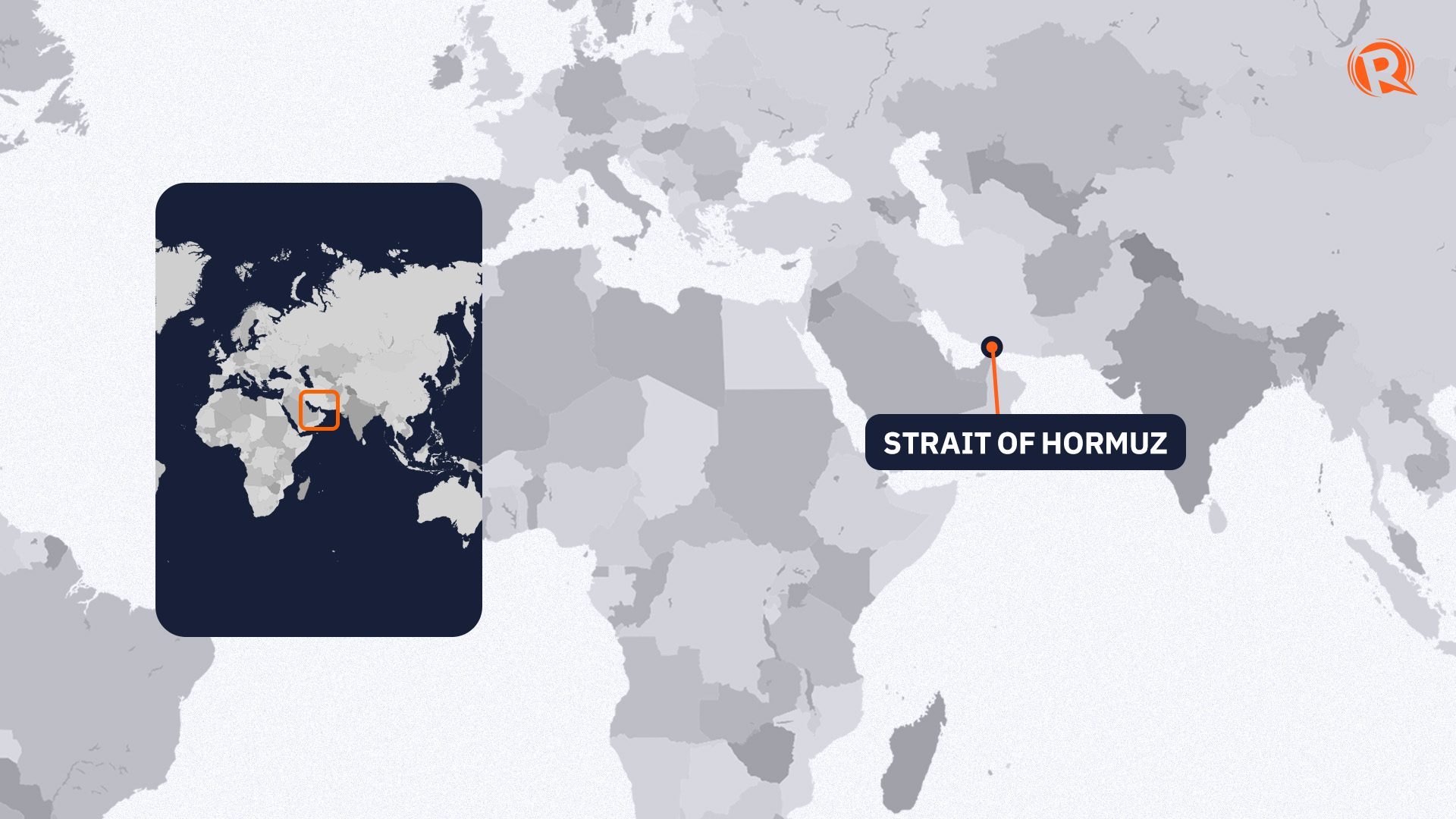SUMMARY
This is AI generated summarization, which may have errors. For context, always refer to the full article.

DUBAI, UAE – Iran’s Revolutionary Guards seized an Israeli-linked cargo ship in the Strait of Hormuz on Saturday, April 13, days after Tehran said it could close the crucial shipping route and warned it would retaliate for an Israeli strike on its Syria consulate.
Iran’s state-run IRNA news agency reported that a Guards helicopter had boarded and taken into Iranian waters the Portuguese flagged MSC Aries, saying it was linked to Israel.
MSC, which operates the Aries, confirmed Iran had seized the ship and said it was working “with the relevant authorities” for its safe return and the wellbeing of its 25 crew, which includes four Filipino seafarers, according to an April 14 statement from the Department of Migrant Workers (DMW).
The DMW said it was “in touch with the families of our dear seafarers and have assured them of full government support and assistance.”
“We are also in coordination with the Department of Foreign Affairs, the licensed manning agency, ship manager, and operator to ensure the safety and well-being as well as work on the release of our dear seafarers,” the DMW added.
MSC leases the Aries from Gortal Shipping, an affiliate of Zodiac Maritime, Zodiac said in a statement, adding that MSC is responsible for all the vessel’s activities. Zodiac is partly owned by Israeli businessman Eyal Ofer.
Video on Iranian news channels purporting to show the seizure included a figure abseiling from a helicopter on to a ship. Reuters was able to verify that the ship in the video was the MSC Aries but not the date it was recorded.
The incident comes amid rising regional tensions since the start of Israel’s campaign in Gaza in October, with Israel or its ally the United States clashing repeatedly with Iranian-aligned groups in Lebanon, Syria, Iraq and Yemen.
Iran has threatened to retaliate for suspected Israeli airstrikes on its consulate in Syria’s capital Damascus on April 1 that killed seven Revolutionary Guards officers including two senior commanders.
US President Joe Biden said on Friday he expected Iran to attack Israel “sooner, rather than later” and warned Tehran not to do so.
Israel’s military spokesperson, Rear Admiral Daniel Hagari, said “Iran will bear consequences for choosing to escalate this situation any further,” in response to reports of the seizure of MSC Aries.
Israeli Foreign Minister Israel Katz accused Tehran of piracy.
Escalation
On Tuesday the naval head of the Revolutionary Guards, Alireza Tangsiri, said it could close the Strait of Hormuz, which lies between Iran and the United Arab Emirates, if deemed necessary.
He said Iran viewed as a threat Israel’s presence in the UAE, with which Israel established diplomatic relations in 2020 as part of the “Abraham Accords” mediated by the United States.
Analyst Hasan Alhasan of the International Institute for Strategic Studies said if the seizure of the MSC Aries was in retaliation for Israel’s strike on Iran’s Damascus consulate, it showed a desire to save face without a wider escalation.
“Iran may be trying to play on fears that it could obstruct shipping through the strait, a passageway of greater significance to global oil and gas supplies than the Red Sea,” he said.
“If Iran were to limit itself to seizing commercial vessels linked to Israel then it would minimise the risk of an all-out conflict but damage its own credibility,” he added.
Yemen’s Iran-backed Houthi group has disrupted global trade with attacks on shipping in the Red Sea for months, saying it is aiming at vessels linked to Israel in retaliation for Israel’s campaign in Gaza.
The United States and Britain have carried out strikes against Houthi targets in response to the attacks on shipping.
The Joint Maritime Information Center, run by a Western-led naval coalition, said vessels intending to navigate the Strait of Hormuz, one of the world’s most important energy routes, should exercise caution and not loiter. – Rappler.com
Add a comment
How does this make you feel?





There are no comments yet. Add your comment to start the conversation.